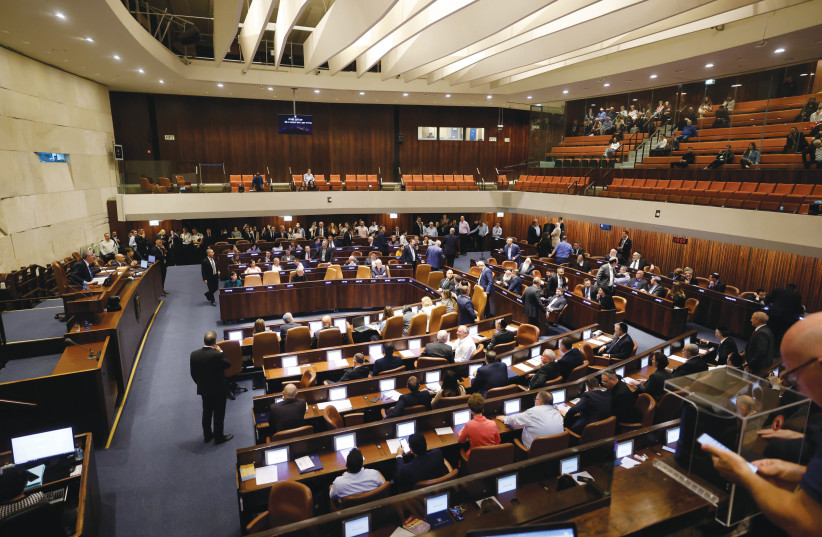Even after the reports on the details of the coalition agreements, if the Knesset elections were held today, the map of the blocs in the current Knesset would not change, with 64 seats for the coalition, compared to 56 for the opposition - according to a survey conducted for Maariv-Weekend by the Panels Politics Institute under the leadership of Dr. Menachem Lazar.
According to the survey, the Likud, Yesh Atid and United Torah Judaism would become stronger, while the Religious Zionist, the National Unity party, Shas and Yisrael Beytenu would weaken. Additionally, Meretz and Balad would pass the electoral threshold, while Hadash-Ta'al would remain outside of the Knesset.
In answer to the question, if the Knesset elections were held now, who would you vote for? The result was: Likud with 35 seats, Yesh Atid with 26 seats, Religious Zionist-Otzma Yehudit with 12 seats, the National Unity party with 10 seats, Shas with nine seats, Torah Judaism with eight seats and Yisrael Beytenu, Labor, Meretz, Balad and Ra'am with four seats.
What is the current state of the incoming coalition?
Benjamin Netanyahu's bloc won 64 seats in the election in November when Meretz didn't make it over the threshold for the first time since the party was established. Since then, Netanyahu has been trying to form a coalition, a task that has proved difficult as negotiations with his coalition partners have dragged out.
After receiving a 10-day extension to his mandate, Netanyahu announced that he could form a coalition on Wednesday night even though he had only signed one final deal.

Netanyahu's coalition partners have made multiple controversial demands throughout the negotiations such as UTJ demanding that Israel not generate electricity on Shabbat. The coalition party leaders have also demanded ministerial positions that have been considered controversial, for instance, Shas leader Aryeh Deri who demanded to be Finance Minister after being convicted of financial crimes.
